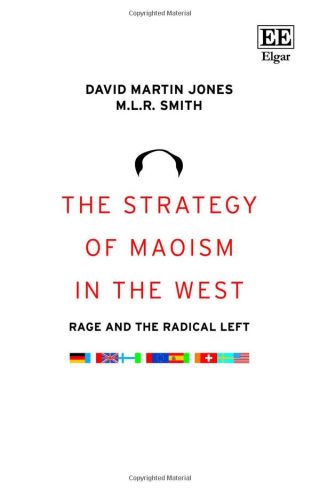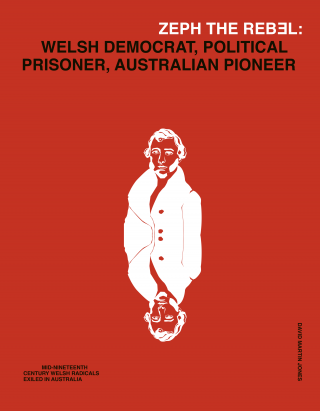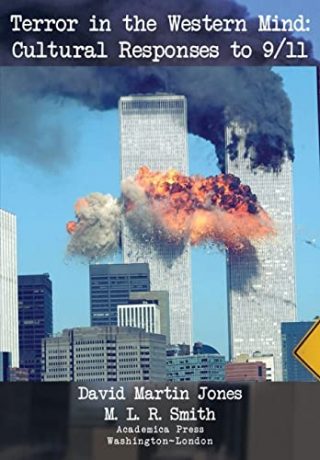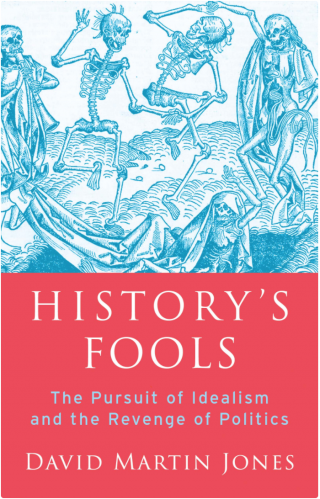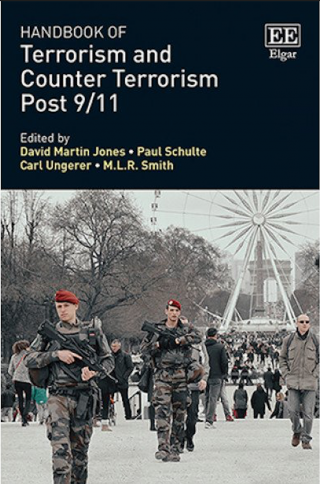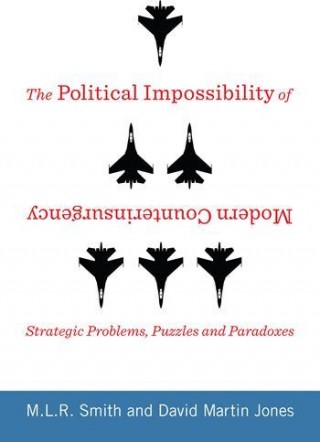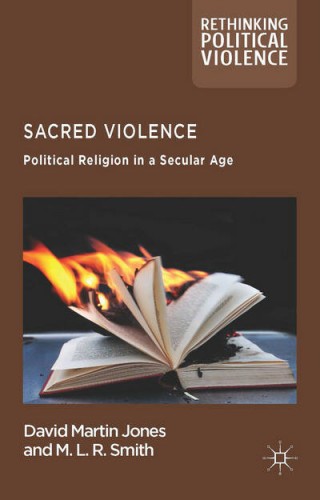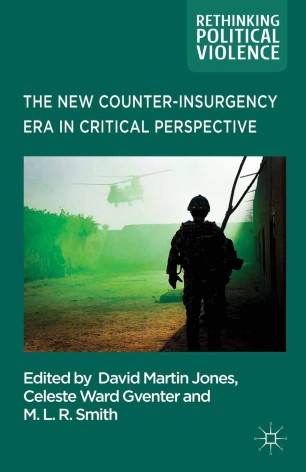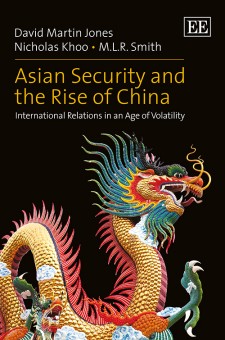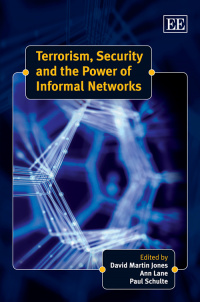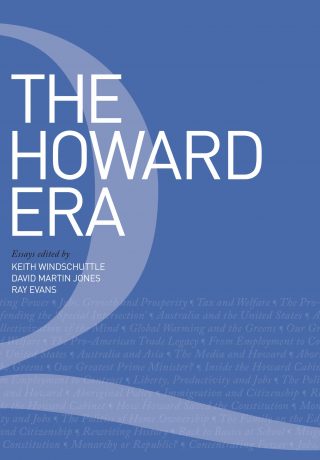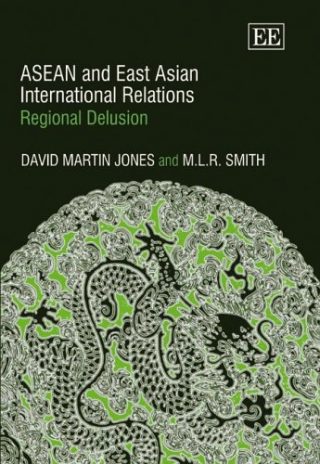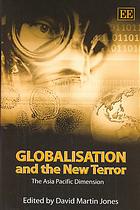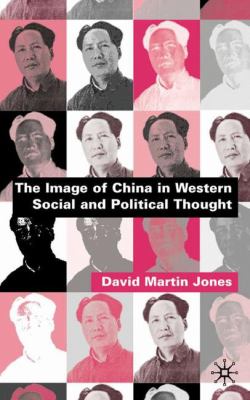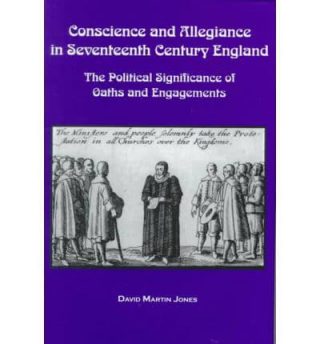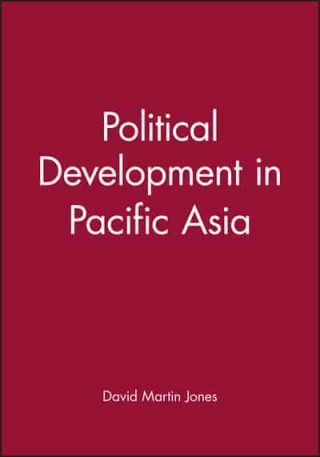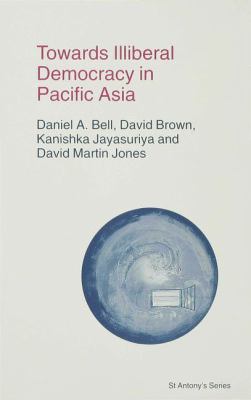In February 2017, the then Dean of Bristol Cathedral, the Very Reverend David Hoyle, announced he was “prepared to have a conversation” about removing the Cathedral’s largest stained-glass window because of its links to the prominent seventeenth-century philanthropist, slave trader and deputy governor of the Royal African Company, Edward Colston. After violent demonstrations against racism in a number of British cities in June 2020 and the toppling of statues like Colston’s, the Dean’s preparedness seemed prescient.
Bibliography
| Type | Date | Title |
|---|---|---|
| Article | 2023 |
Europe After Ukraine – How the war in Ukraine ends will shape the geopolitical future of Europe The structure of European politics, and the new balance of powers within it, will be profoundly affected by the way the war in Ukraine ends. |
| Article | 2023 |
The Suicide and Conquest of Britain Revisited The mid-sixth century Welsh monk, Gildas Sapiens (Gildas the Wise), observed the descent of Roman Britain into barbarism. Gildas wrote his De Excidio et Conquestu Brittaniae (The Suicide and Conquest of Britain) as both a warning to posterity and an explanation of how a once wealthy, civilized, Roman province declined into what historians once referred to as the Dark Ages. Given the current divided and depressed state of post-Brexit Britain, Gildas’ commentary on how and why Roman Britain disintegrated is perhaps worth recalling. The problem Gildas identified in the mid-sixth century, which also besets the UK today, was the growing separation of the isles into divided ‘nations’ and the threat to its integrity unlimited migration from Europe posed. Over a period of half a century, Gildas argued, migration turned into an invasion that fundamentally transformed the British Isles, and not for the better. |
| Article | 2023 |
Competing Global Visions – The Clash of Civilizations Revisited Somewhat misguidedly, we are apt to think of a civilization as something solid and external. Yet at bottom it is, as Michael Oakeshott wrote, ‘a collective dream’. What a people dreams in this earthly sleep is its civilization. And the substance of this dream is a myth, an imaginative interpretation of human existence, the perception (not the solution) of the mystery of human life. ‘The office of literature in a civilisation is not to break the dream, but to recall it, to recreate it in each generation, and even to make more articulate the dream-powers of a people. We, whose participation in the dream is imperfect and largely passive, are, in a sense, its slaves. But the comparative freedom of the artist springs not from any faculty of wakefulness (not from any opposition to the dream), but from his power to dream more profoundly. And it is that which distinguishes him from the scientist, whose perverse genius is to dream that he is awake.’ |
| Article | 2022 |
The Ukraine War and the Net Zero Delusion If truth is the first casualty of war, then the collapse of political illusions must be the second. War and its outcomes are never certain. From Thucydides to Clausewitz, connoisseurs of the phenomenon have counselled against its recourse unless it is informed by clear and achievable goals. Violence clarifies. In the case of Vladimir Putin it has exposed the illusion of Eurasianism, the failings of Russian hard power, its loss of markets for its arms industry, and threatens the integrity of the Russian Federation, ultimately reducing it to a satrapy of Greater China. |
| Article | 2022 |
The European Union as the New Tower of Babel The EU richly deserved Brexit. Warnings about the problem of currency union in the 1990s have come to fruition. The dire debt situation of the weaker member states has been exacerbated by the central bank response to Covid and the inflation and shortages that now beset Europe, amplified of course by the current Ukraine crisis, itself a product of European inertia. |
| Book review | 2022 |
Taking Serious Threats Seriously Patrick Nash writes in his study of British Islam and English Law, “Conventional jurisprudence has proved itself inadequate to the task of conceptualising the relationship between Islam and English law,” Nash, a barrister and legal historian, is ideally qualified to explore the issues British Islam raises for the rule of law and also offer some provocative solutions. The book demonstrates how woefully British institutions have grappled with the problems that Muslim groups and their transnational clan networks pose for a secular, liberal democratic order. |
| Article | 2022 |
A Stand for Free Speech Modern hate speech laws have their roots in a strange form of modern Puritanism and must be opposed. |
| Article | 2022 |
Putin’s Geopolitical Brain – Who is Alexander Dugin? The killing of Darya Dugina, daughter of Russian nationalist ideologue Alexander Dugin, has raised questions about her father – seemingly the intended target of the attack. Just who is Alexander Dugin and what is his influence on Putin? |
| Article | 2022 |
The Crude Maoist Origins of Today’s Culture Wars |
| Article | 2022 |
Realism or Idealism: the Predicament of Western Diplomacy Whereas prudence emphasizes political or reasonable action adjusted to particular and contingent circumstances, liberal progressivism like other forms of modern rationalism sees global problems only in terms of universal panaceas. |
| Book | 2022 |
The Strategy of Maoism in the West: Rage and the Radical Left Investigating 20th century Chinese ideology through the two main elements of passionate belief and cultivation of rage, this timely book examines how Maoist thinking has influenced Western politics. Tracing the origins of Maoist ideas in Western politics, David Martin Jones and M.L.R. Smith expertly apply the principles of strategic theory to provide an understanding of how Mao’s ideas made their way from China into Western societies where they exert a profound and little understood impact on contemporary political conduct. The book offers critical insights into key theoretical discourses and their practical applications, including: Maoism, Orientalism and post-colonial discourse theory, Maoism and the mind, and Maoism and the politics of passion. Forward-thinking in its approach, it addresses the important question of where Maoism will end, analysing the trajectory that Maoism is likely to take and what the cumulative impact of it upon Western societies may be.
|
| Article | 2022 |
Globalising Elites and the Withering of Democracy At the end of the Cold War, Western democracies emerged as the wealthiest and most powerful states the world had ever seen. Three decades later, in the wake of a global pandemic, they are hugely indebted, weak, self-loathing arrangements riven by incessant migration and beset by identity crises. What went wrong? |
| Article | 2022 |
Putin’s Geopolitics – Making Sense of the War in Ukraine Experts have lined up to comment on the geopolitical tensions between Russia and Ukraine. But what does geopolitics actually mean? And what does it mean to Putin? |
| Article | 2022 |
Democracy and Dystopia: Part Two – The Revenge of Politics The progressive worldview of the transnational class has left the West divided and exhausted. |
| Article | 2022 |
Dividing the Kingdom: Britain’s Game of Thrones After Brexit, government policy-making was supposed to focus on securing the national interest. Those who supported leaving the European Union assumed the United Kingdom would resume control of its territorial borders, reassert parliamentary sovereignty and return to its historic role as an independent sovereign state with a commitment to a rule-governed international trading order. |
| Article | 2022 |
Democracy and Dystopia: Part One – The Intangible Economy Despite initial triumphalism, the post-Cold War growth of intangible capitalism, divorced from the concerns and values of democratic nation states, has left western democracies facing economic, social and existential crises. |
| Article | 2022 |
A Union Without Faith or Law: Part Two (Global Britain or Vanishing Kingdom?) In the second of two essays exploring the state of the United Kingdom post-Brexit, David Martin Jones and M.L.R. Smith argue that a woke foreign policy establishment and its academic apologists undermine rather than promote the UK’s national interest. |
| Article | 2022 |
A Union Without Faith or Law: Part One (The post Brexit Game of Thrones) Far from seeing Brexit as an opportunity to reassert national sovereignty, the government’s pandemic response has strengthened calls for the dissolution of the union. In the first of two essays, David Martin Jones and M.L.R. Smith consider the state of the United Kingdom. |
| Book | 2022 |
Zeph the Rebel: Welsh Democrat, Political Prisoner, Australian Pioneer “The extraordinary if emblematic story of a British radical from Wales transported to Australia at a key moment in the evolution of the still-emerging British Empire. That radical is Zephaniah Williams, Chartist and convict, and one of the few entries to be found in both the
|
| Article | 2021 |
Misreading Mill: On Liberty and Vaccination Disputing the claim, often made by libertarian lockdown enthusiasts, that J.S. Mill would have supported mandatory Covid vaccinations. |
| Interview and discussion | 2021 |
Panel: Will ASEAN maintain its centrality in the age of great power competition? ASEAN is gaining importance in the competition between the U.S. and China, as U.S. Secretary of State Antony Blinken made his maiden trip to the region this week. Will ASEAN maintain its centrality in this great power competition? Our host Liu Kun is joined by David Martin Jones, Visiting Professor at KCL, Timo Kivimaki, Professor at University of Bath, Dr. Lee Pei May, Assistant Professor at the International Islamic University Malaysia, and Professor Zha Daojiong of Peking University. |
| Article | 2021 |
The Chinese Dream – China’s Challenge to Global Britain The UK government and the mainstream media’s failure to recognize the implications of this latest stage in China’s development as a totalitarian despotism is disquieting. The CCP, and its dictatorial leader, represent a serious threat to a United Kingdom struggling to recover from the social and economic devastation wrought by Covid-19 and successive lockdowns. Unlike other threats to national security that emerge from outside or within the UK, China directly challenges both the UK’s internal security and its interest in securing a rule-governed, international post-pandemic order. The UK thus needs a far more coherent defence and foreign policy posture to address the threat from China. |
| Article | 2021 |
Terrorism and the Western Mind As the twentieth anniversary of 9/11 passes, we can begin to assess how the long war on terror affected the West’s cultural self-understanding. In strategic terms the long wars launched after 9/11 failed to achieve an outcome better than the status quo ante. Little attention, however, has been given to what two decades of media representation of jihadism, asymmetric violence and military intervention have had upon Western popular culture. The genres of film, the novel, art and popular music all addressed the long war on terror from a variety of perspectives, but the prevailing tone might be summarised as at best agnostic, at worst masochistic and self-loathing. |
| Article | 2021 |
Terror in the Western Mind One of the West’s problems is that at the end of the Cold War, it has been uncertain of its purpose—which has engendered a moral and political crisis, especially in the face of the threat of Islamic terrorism. |
| Book | 2021 |
Terror in the Western Mind: Cultural Responses to 9/11 Twenty years after the terrorist attacks on the World Trade Center and Pentagon, we can now see that the War on Terror profoundly affected Western self-understanding and the secular liberal image it sought to project onto a global canvas at what was widely assumed to be the end of history. The dramatic change in awareness that 9/11 brought about was particularly vivid, this book maintains, in the media that sustained and displayed the West’s self-image. In particular, fiction, film, drama, the visual arts, and popular music have all struggled to come to grips with the phenomena of terror, asymmetrical warfare, home grown jihadist activism, and the moral and political dilemmas they evoke. The book further argues that the evolving progressive response to 9/11 assumed an increasingly ideological character via the critical and normative international relations theories that came to dominate Western campuses after 2001. These perspectives gave substance to an increasingly critical depiction of the West’s War on Terror and its popular promotion through works of literature, film, music, and the visual arts. Promoted through these popular genres, it combined the ingredients that formed “woke” ideology in an accessible formula that subsequently dominated both the mainstream media, academia, and, in time, government agencies.
|
| Article | 2021 |
Culture and Carnage: Terror and the Closing of the Western Mind As we approach the twentieth anniversary of 9/11, David Martin Jones and M.L.R. Smith consider the legacy of the West’s cultural representation of the war on terror. They argue a jaundiced approach to jihadism and terrorism speaks to the West’s inability to defend core values of liberalism and democracy. |
| Article | 2021 |
The Age of Ambiguity: Art and the War on Terror Twenty Years after 9/11 9/11 and its aftermath was to have a dramatic impact on the visual arts and the artistic response to the War on Terror. This study surveys the evolution of these responses from the dramatic events of 11 September 2001 to the longer term reactions generated by the two-decade long encounter with the so-called War on Terrorism, primarily via the Imperial War Museum’s Age of Terror/Art Since 9/11 exhibition of 2017–2018. The analysis suggests that the visual artistic response moved from the initial amazement at the destruction of the Twin Towers, through satirical caricature of the terrorist persona, to a trite predictability that mirrored official equivocation about the threat posed by violent jihadist activism. Artistic endeavor on these terms became notable only for its moral ambiguity and complicity in self-censorship rather than contributing to the creation of artwork of enduring value. This article can be read online at https://doi.org/10.1080/1057610X.2021.1943813 |
| Article | 2021 |
Blowin’ in the Wind? The Musical Response to the War on Terror Popular music was the most immediate way in which the cultural response to 9/11 manifested itself. Initially music offered a way of mourning and coping with grief. As the United States moved toward the invasion of Iraq, pop music also began to reflect the divisions in society between patriot-artists who supported the invasion, most notably in country music, and protest-artists who articulated critical attitudes to war. These anti-war songs did not attain the stature of those that characterized the era of protest during the Vietnam War, nor did they offer a musical accompaniment to a social movement with any enduring political significance. One little observed dissonance that a longitudinal survey of the musical response to political violence reveals, however, is that over time the attitudes of protest songwriters and the patriots transvalued. Ironically, interventionist “rednecks” became disillusioned with the endless wars of intervention, whilst the “protest” writers lost their voices after President Obama came to power. Ironically, icons of popular music instead turned their ire on those who voted for an anti-establishment President Trump who vowed not to involve the U.S. in further military adventures. |
| Interview and discussion | 2021 |
Discussion: American Awakening: Identity Politics and Other Afflictions of Our Time Joshua Mitchell’s (Georgetown University) “American Awakening: Identity Politics and Other Afflictions of Our Time” (Encounter Books, 2020) argues that America (although the argument extends to the West) is afflicted by identity politics, bipolarity, and addictions. |
| Article | 2021 |
The Diminishing Difference Between Sin and Crime Policing what we do with words requires the common law to interpret and adjudicate upon what J.L. Austin (in How to Do Things with Words, 1962) identified as an illocution or performative speech act. Such acts, Austin demonstrated, could not only misfire, they might also produce “consequences which are unintended”. This notwithstanding, and developing speech act theory in a way Austin would have considered “unsound”, the UK College of Policing considers hate “not caused by the speech, but the speech itself constitutes the harm”. |
| Article | 2021 |
The pleasure of hating Debates over what constitutes ‘hate speech’ reintroduce dangerous concepts of sin and morality into our common law |
| Book review | 2021 |
Anne Applebaum’s Debt to Adorno (review of “Twilight of Democracy: The Seductive Lure of Authoritarianism”) Since 2016, books devoted to the decline of democracy have established a niche market. Political scientists like David Runciman, Yascha Mounk, Larry Diamond, Steven Levitsky, and Daniel Ziblatt contemplate how democracies might “die” or “end.” It is to this academically fashionable American gothic genre devoted to the decay and death of the democratic body politic that we may assign Anne Applebaum’s Twilight of Democracy. |
| Interview and discussion | 2021 |
Video review: The Dictatorship of Woke Capital David Martin Jones and Bruce Oliver Newsome review “The Dictatorship of Woke Capital: How Political Correctness Captured Big Business” by Stephen R. Soukup. |
| Article | 2021 |
Hedging and grand strategy in Southeast Asian foreign policy This article examines recent interest in hedging as a feature of international politics in the Asia Pacific. Focusing on the small states of Southeast Asia, we argue that dominant understandings of hedging are misguided for two reasons. Despite significant advances in the literature, hedging has remained a vague concept rendering it a residual category of foreign policy behavior. Moreover, current accounts of hedging tend to overstate the strategic intentions of ostensible hedgers. This article proposes that a better understanding of Southeast Asia’s foreign policy behavior needs to dissociate hedging from neorealist concepts of international politics. Instead, we locate the concept in the context of classical realism and the diplomatic practice of second-tier states. Exploring Southeast Asia’s engagement with more powerful actors from this perspective reveals the strategic limitations of the Association of Southeast Asian Nations and the dilemma that Southeast Asian states face from a rising China challenging the status quo in the western Pacific. |
| Interview and discussion | 2021 |
Discussion and review: Who Rules? Sovereignty, nationalism, and the fate of freedom Bruce Oliver Newsome, Ph.D., and Professor David Martin Jones discuss the new book: Who Rules? Sovereignty, Nationalism, and the Fate of Freedom in the Twenty-First Century, edited by Roger Kimball (Encounter Books, 2020), with chapters by Victor Davis Hanson, John Fonte, James Piereson, John O’Sullivan, Michael Anton, Angelo M. Codevilla, David Azerrad, Christopher Buskirk, Daniel McCarthy. |
| Article | 2021 |
Democracy in the USA – Clarifying Acts of Violence In the context of the current democratic malaise, this American inattention to its own revolutionary, constitutional particularity reflects a broader mood swing in comparative political science from liberal optimism to Spenglerian pessimism about democracy’s future. The reasons for this loss of faith, however, reveal a crisis not so much in democratic institutions themselves, but in the limited and abstract democratic theory the media and social scientists employ to compare systems of government and promote a rationalistic rather than a historically informed account of how they should function. |
| Article | 2021 |
Making America Miserable Again The election of Joe Biden as the forty sixth president of the United States will see a reversion to Washington’s default liberal, progressive values in foreign policy, a revival of the Wilsonian, rules-based international order that the Obama, Bush and Clinton presidencies embraced, and the liberal academic establishment advanced during the Trump interregnum. This article can be read online. |
| Article | 2021 |
The fine art of hating It may be a sin but it shouldn’t be a crime to loathe thy neighbour. Western democracies as well as the European Court of Human Rights are so concerned about hate speech that they have not only criminalised its utterance, but, if the law commissions of Scotland and England have their way, will extend its sanction from the public to the private domain. The novelty of policing speech that ‘implies a high degree of animosity’ represents a remarkable extension of criminal law. |
| Article | 2020 |
Islamophobia and the suicide of the West How is it that in 2020 an all-party parliamentary group of MPs appears to be more exercised by Islamophobia than the treatment of Christians? Why is a former chair of the Conservative party, that once considered itself the Church of England at prayer, “truly ashamed” of the party, not for abandoning the Anglican faith, but for its lack of empathy with Islam? |
| Article | 2020 |
Why we might look back on Trump’s foreign policy with fondness A deluded internationalism that treats the world as it ought to be rather than it currently is, offers the worrying prospect of a rerun of Obama’s sanctimonious foreign policy and the tried and failed end of history idealism that did so much to encourage the rise of revisionist powers like Russia, Iran and, of course, China in the first place. |
| Interview and discussion | 2020 |
Discussion on the failures of progressive liberalism David Martin Jones takes the unfashionable risk of reclaiming classical liberalism from progressive-liberalism. His latest book (“History’s Fools”) achieves the monumental feat of tracing progressive-liberal failures at both domestic and international levels. |
| Article | 2020 |
Pandemania: Or, a Brief History of the Medicalisation of Life One of the many curious features of the declaration of the coronavirus pandemic in March 2020 was the belief that the outbreak was unprecedented. The mainstream Western media not only assumed its global impact unique, they also anticipated its consequences in a rhetoric that mixed the mawkish with the morbid and the apocalyptic. In an atmosphere of media hysteria, governments reinforced the sense of impending doom, embracing an epidemiological prediction of death rates of 1 per cent of the West’s population unless they locked down the economy, quarantined households and suspended all non-essential activity. |
| Article | 2020 |
The West’s Maoist Moment: Lessons in How to Destroy an Inconvenient Past A censorious impulse to remove or ‘cancel’ any person, object or thought that does not conform to the ideological purity demanded by woke activists has escalated over recent months. Now, triggered by Black Lives Matter protests, a wholesale cultural revolution is underway. Here, David Martin Jones and M.L.R. Smith explore the influence of Maoism on today’s protesters. They argue we are in the throes of a cultural revolution which will lead, inevitably, to mayhem and destruction. |
| Report | 2020 |
Is Coronavirus unprecedented?: A brief history of the medicalisation of life The coronavirus declared a pandemic by the World Health Organisation (WHO) in March 2020 has, for the most part, been spoken of as unique, exceptional and unprecedented. Relatively few voices have tried to remind the public that there is nothing particularly novel about disease in the human experience or that we are desperately in need of some historical perspective. This historical overview tries to set Covid-19 in context. It also reveals the extent to which the exaggerated pursuit of national health has resulted in a dangerous condition of ‘cultural iatrogenesis’. Iatrogenesis occurs when societies capitulate to ‘professionally organised medicine that has come to function as a domineering moral enterprise’ and which advertise their bureaucratic expansion as ‘a war against all suffering’. This is not of course to say that suffering sickness is good and should be preserved, but rather that societies coming under the control of total healthcare regimes also suffer and suffer in ways they no longer have the authority or will to manage. This is the predicament that democracies, post Covid-19, will, we conclude, have to confront. |
| Book | 2020 |
History’s Fools: The Pursuit of Idealism and the Revenge of Politics The end of the Cold War announced a new world order. Liberal democracy prevailed, ideological conflict abated, and world politics set off for the promised land of a secular, cosmopolitan, market-friendly end of history. Or so it seemed. Thirty years later, this unipolar worldview— premised on shared values, open markets, open borders and abstract social justice—lies in tatters. What happened? David Martin Jones examines the progressive ideas behind liberal Western practice since the end of the twentieth century, at home and abroad. This mentality, he argues, took an excessively long view of the future and a short view of the past, abandoning politics in favour of ideas, and failing to address or understand rejection of liberal norms by non-Western ‘others’. He explores the inevitable consequences of this liberal hubris: political and economic confusion, with the chaotic results we have seen. Finally, he advocates a return to more sceptical political thinking— with prudent statecraft abroad, and defence of political order at home—in order to rescue the West from its widely advertised demise. History’s Fools is a timely account of the failed project to shape the world in the West’s image, and an incisive call for a return to ‘true’ politics. Publication Date: 09/04/2020
|
| Article | 2020 |
Brexlit and the decline of the English novel After the June 2016 referendum, novels about what had happened began to appear on bestseller lists and the shelves of British bookshops. Brexlit addressed “the mind-bending horror of Brexit”, as Ali Smith described it in Autumn. It explored not only the polarising political cleavage between Remain and Leave voters but “deep cultural and attitudinal divisions” that will, the Guardian argued, “animate British politics for decades to come”. Given the British preference for social analysis in novel form, how might Brexlit help us understand what James Graham, discussing his referendum docudrama The Uncivil War, terms a “national trauma”? |
| Article | 2019 |
Campus of dunces On Australian universities and academic freedoms. |
| Article | 2019 |
Brexit and the Decline of the English Novel |
| Book | 2019 |
Handbook of Terrorism and Counter Terrorism Post 9/11 The events of 9/11 gave rise to a new epoch in world history. This Handbook examines how the world order and our understanding of war and peace has been transformed since the global war on terror began. Bringing together expert commentators and academics from Asia, US, Europe and the Middle East, the Handbook of Terrorism and Counter Terrorism Post 9/11 assesses regional responses to terrorism and evaluates the emergence of new threats. This timely reflection on the consequences of the global war on terror considers the future of asymmetric conflict in the context of the fourth industrial revolution, and the evolution of cyberwarfare. Providing an analysis of terrorism since 2001, from Al-Qaeda to Daesh, and a critical evaluation of counter terrorism and counter insurgency, this Handbook is an essential primer for students, at all levels, researching terrorism, insurgency, global warfare and international relations. It will also benefit defence and security personnel enrolled on postgraduate courses in military academies.
|
| Chapter | 2019 |
From Realism to Surrealism: The Study of International Relations and the Closing of the Australian Mind A Chapter in William O. Coleman (ed.) The Deepening Crisis in Australian Universities. |
| Article | 2019 |
With Friends Like These: Australia, the United States, and Southeast Asian Détente |
| Book review | 2018 |
Suicide of the West versus National Awakening Review of Suicide of the West: How the Rebirth of Tribalism, Populism, Nationalism, and Identity is Destroying American Democracy by Jonah Goldberg and The Virtue of Nationalism by Yoram Hazony. |
| Article | 2018 |
The Liberal Mind and its Oppression Quotient It is by no means inexplicable that classic liberalism, which pioneered the idea of the free individual, should by a process of rational critique mutate into an ideology that inhibits free expression if it undermines ‘progress’, peace, harmony and the mitigation of suffering and self-pity. |
| Article | 2018 |
Spring in the East? The Western media greeted the unexpected defeat of Malaysia’s governing coalition in the general election held last week with a mixture of surprise and delight. The opposition multi-party ‘alliance of hope’ (Pakatan Harapan) had democratically triumphed over seemingly insuperable odds. Not surprisingly, western commentators hailed the political upset as a welcome triumph for democracy and a lesson to autocrats everywhere. The Guardian declared it ‘a game changer in South East Asia where democracy’s claims have long been resisted’. Writing in the Daily Telegraph, Fraser Nelson considered the outcome ‘a kind of Malaysian spring’. But is it? |
| Article | 2018 |
Commonwealth Summit – A new opportunity for an old institution? Not many people know that April 19 is Commonwealth Day. There is no public holiday, and the country will go about its business much as usual. This year, however, might be different. Fifty three Commonwealth Heads of Government (CHOGM) meet in London this week for their biennial conference to address their ‘common future’ and ‘build a better’ one. The endlessly optimistic Foreign Secretary, Boris Johnson considers it ‘a huge opportunity for a global Britain’. In an age of mounting uncertainty and amidst the strains and stresses of Brexit, the Commonwealth offers perhaps an interesting and neglected resource. |
| Article | 2018 |
Utopian Ambitions Meet Big Data Social media deliberately exploits human psychology, not least with its parade of endless distractions. As well as making us stupid and inattentive, political democracy also is undermined via the mining of big data, as the ongoing revelations of Facebook’s privacy violations attest. |
| Article | 2018 |
Between Declarations and Dreams – China, US Foreign Policy and Southeast Asia |
| Article | 2018 |
Intelligence and the management of national security: the post 9/11 evolution of an Australian National Security Community Michael J. Hinze Award for Best Article 2018 Since 2001 expenditure on the security services has increased exponentially in Western democracies and particularly amongst the Five Eyes community of the UK, the US, Canada, Australia and New Zealand. This has occurred in conjunction with the expansion of counter-terror laws. Yet somewhat problematically the phenomenon of Islamist inspired violence became more threatening to the internal security of western democracies in the first decade of the twenty-first century. This study examines the Western managerial approach to security using Australia as a case study. It argues that the growth of Australian security agencies since 2001 and their evolution into a National Security Community after 2008 has neglected basic maxims of political and constitutional prudence and eschews the modern state’s own contractual self -understanding of sovereignty and political obligation. |
| Report | 2017 |
UK Strategy in Asia: Some Starting Principles The Prime Minister’s visit to Japan offers a useful starting point for a new discussion on what the UK’s strategy in Asia should be. That it coincided with North Korea’s latest missile launch was a graphic illustration of how trade and security are umbilically connected in the Asia Pacific – and a curtain raiser on the type of dilemmas that the UK is likely to face as it develops its Asia policy. Read the summary here. |
| Article | 2017 |
Iconoclasm and Strategic Thought: Islamic State and Cultural Heritage in Iraq and Syria This article analyses the way in which the group calling itself the Islamic State in Iraq and Syria (Islamic State) manages cultural heritage sites under its control. By drawing on three different cases—Palmyra; Sufi, Shi’a and Sunni heritage sites; and Mosul—it examines the way in which the logic of Islamic State’s iconoclasm might also be considered a strategy. To be considered strategic the contention is that three factors need to prevail: the degradation and delegitimization of the existing societal fabric, the removal of all reference to the previous society, and an attempt to reconstruct society in keeping with a new ideological vision. When these three factors are present and interconnected then iconoclasm as a strategy can be said to be manifest. In the case of Islamic State, this article also seeks to illustrate that its actions may broadly be categorized as either pragmatic or dogmatic, thus creating an inconsistent dichotomy within Islamic State’s rhetoric. The article frames such a dichotomy within the context of a strategic narrative both in order to be able to connect pragmatic Islamic State policy to action and to show that when rigid doctrine clashes with the exceptionality of war an irresolvable paradox is created. |
| Article | 2017 |
Jihadism and the death cult Islamists are making the most of our cultural and political weaknesses. |
| Article | 2017 |
Apocalypse Soon David Martin Jones and MLR Smith analyse Trump’s thinking on North Korea. |
| Article | 2017 |
Was Donald Trump bluffing about sending a navy strike group to North Korea? |
| Article | 2017 |
Donald Trump and the New Jacksonians |
| Article | 2017 |
Killing history In February, the Dean of Bristol Cathedral, the very reverend David Hoyle, announced his ‘openness’ to removing the Cathedral’s largest stain glassed window because of its links to the prominent seventeenth century Bristol slave trader and deputy governor of the Africa Company, Edward Colston. The Bristol campaign against the Colston legacy is the latest instalment in an Anglospheric movement to remove the stigma of the slave trade, colonialism and racism from statues and buildings on campuses and in public spaces. |
| Article | 2017 |
The Closing of the Common-Law Mind Illiberal and hypocritical — those few words capture the contortions of British judges who have ruled that the voices and votes of Brexit supporters need parliamentary endorsement. Consider the contradiction: those who would bow to Brussels also insist their own lawmakers are paramount. |
| Article | 2016 |
The Art of the Politically Possible Britain, like Australia, needs a foreign policy geared to its long-term interests in a rapidly changing world no longer en route to a liberal democratic end of history. This has become an urgent task in the wake of the June 23 vote to leave the European Union. As new Prime Minister Theresa May’s government has come to recognise, policy must not only consider the economic dimension of Brexit, but also how economics and geopolitics are linked in an interconnected but by no means integrated world. |
| Article | 2016 |
Donald Trump’s comments on Taiwan are crystal clear: he wants to align the USA with Russia against China |
| Article | 2016 |
South Korea’s political crisis will be ripe opportunity for Pyongyang and Beijing |
| Article | 2016 |
Death of King Bhumibol Adulayadej has profound implications for Thailand’s political and economic stability |
| Article | 2016 |
Political religion and the rise of transnational right and left-wing social movements since 9/11 The Austrian philosopher, Eric Voegelin, argued that the ideological fanaticism of the Nazis was a spiritual perversion. More precisely, so far, as the political religions of the twentieth century, Fascism, Stalinism, Maoism and Islamism, are concerned, the meaning or substance of religious phenomena moved from a spiritual concern with transcending the mundane world towards the realisation of imaginary fantasies of immanent apocalypse and the fashioning of this worldly utopias. These fantasies are not always recognised for what they are because the image of an earthly condition of perfected humanity was often expressed in scientific language. This was not the case with revolutionary Islamic thought, but it remains so with other ideological social movements of both left and right that have evolved since 9/11. This is the case with both race-based and anti-capitalist social movements that pursue national or global purificationism. In this essay, we shall discuss the commonalities between these evolving political religions before examining the Western state response and its implications for the future of secular, liberal democracy. |
| Article | 2016 |
The Illiberal Left and Political Islam |
| Article | 2016 |
Mad and bad On a warm summer night in London’s Russell Square a young, Muslim migrant randomly stabs members of the public. He kills an American tourist and injures others. Responding to the incident, the Metropolitan police could not initially decide whether the assailant was mentally disturbed or a terrorist. How has the apparent confusion between terrorism, violence and madness arisen? |
| Article | 2016 |
The Rise of Sectarianism and Single-Party Rule in Malaysia Part of the Middle East Institute’s essay series on ‘Jihadi Recruitment and Return: Asian Threat and Response’. The apparent reemergence of jihadist activity in Malaysia is disturbing and, perhaps, surprising for a country otherwise noted for its longstanding political stability, recent economic progress, and bright prospects. Yet, as this essay demonstrates, beneath the surface is a tangle of festering problems that have contributed to the progressive alienation of elements within Malaysian society and rendered them susceptible to the appeal of transnational jihadist influences. The rise of Islamist radicalism is one of the more visible and worrisome signs of the erosion of the authority of Malaysia’s long-standing ruling party, the United Malay National Organization (UMNO) . |
| Book review | 2016 |
It’s Not ‘Them’, It’s ‘Us’ (Continued) Review of Caroline Fourest’s book, In Praise of Blasphemy: Why Charlie Hebdo Is Not ‘Islamophobic’. |
| Article | 2016 |
Is Vladimir Putin orchestrating Russian football hooligans to push Britain out of the EU? |
| Article | 2016 |
Brexit and the myth of European security: Would the UK leaving the EU really undermine Western safety? |
| Book review | 2016 |
It’s Not ‘Them, It’s ‘Us’ A review of Michel Houellebecq’s book, Submission. |
| Article | 2016 |
The Novel Response to Jihad Preserving and defending what the West has built requires a sense of purpose and shared public morality. Sadly, of the literary fictions inspired by and following the 9/11 attacks, none goes beyond an agnostic predilection to equivocate. |
| Article | 2016 |
The curious case of Mr Assange Or ‘How Human Rights have become Legal Wrongs’ |
| Article | 2016 |
Terror stalks the Academy: why does the study of terrorism often deny religious motivation? |
| Article | 2015 |
Zealots and Fanatics, Not Radicals Islamic State and its media units release over 90,000 social media posts per day. That’s nearly 33 million posts a year. As the head of MI5 stated, social media is the command and control network of radical Islamism. The appeal of social media is evident. There are no gatekeepers. Messages posted from one remote or hidden location are immediately transmitted to the hip pocket of anyone with a SmartPhone. |
| Article | 2015 |
Islamic State isn’t really radical at all |
| Article | 2015 |
Return to reason: reviving political realism in western foreign policy Geopolitics runs as a theme through several of the articles in the September issue of International Affairs. In the lead article, David Martin Jones and M. L. R. Smith argue that modern western diplomacy needs to revisit early political thinkers’ rationalist understanding of statecraft if security threats – such as that posed by ISIS – are be countered more effectively. |
| Article | 2015 |
Singapore singalong A state sponsored musical pays homage to Lee Kuan Yew |
| Article | 2015 |
The Rise of Dark Americana: Depicting the “War on Terror” On-Screen |
| Article | 2015 |
Rumble in the jungle The West remains unfazed by Malaysia’s deepening political corruption scandals |
| Article | 2015 |
Weak states’ regionalism: ASEAN and the limits of security cooperation in Pacific Asia |
| Book | 2015 |
The Political Impossibility of Modern Counterinsurgency The counterinsurgency (COIN) paradigm dominates military and political conduct in contemporary Western strategic thought. It assumes future wars will unfold as “low intensity” conflicts within rather than between states, requiring specialized military training and techniques. COIN is understood as a logical, effective, and democratically palatable method for confronting insurgency–a discrete set of practices that, through the actions of knowledgeable soldiers and under the guidance of an expert elite, creates lasting results.
|
| Article | 2015 |
Anzac Day terror plot haunted by the ghosts of Gallipoli Historical symbolism is a potent weapon in the propaganda arsenal of Islamic State’s tacticians. |
| Article | 2014 |
Abbott’s ‘Goldilocks’ balancing act Following the G20, Australia finds itself in an unique and desirable position with the world’s two superpowers. |
| Book | 2014 |
Sacred Violence: Political Religion in a Secular Age Sacred Violence examines the place that ideology or political religion plays in legitimizing violence to achieve a condition of worldly perfection. In particular, the book focuses upon Islamism as a post modern political religion that considers violence both necessary and purificatory. It also examines the western democratic states’ response to the threat political religion poses to its secular politics. As Jones and Smith show, the western state response consistently misunderstands and misreads the nature of the appeal of political religion and the leaderless form of resistance it legitimates, which has consequences for its internal and external policy responses. This book offers a unique insight on terrorism, a perspective that is much needed in contemporary internal relations and policy debates. Given the shift from state-based to non-state-based violence and warfare in the post-Cold War era, it provides a timely rethink of the links between ideology, violence and strategic theory which will be of great benefit to the foreign policy and defence communities as well as IR scholarship more broadly.
|
| Article | 2014 |
David Cameron’s ‘Cool Britannia 2’ – be there and be square In the gardens of No 10 Downing Street today, UK-time, Prime Minister David Cameron will host a reception to celebrate “the best of Britain’s creative industries”. Tory celebrities such as Sir Michael Caine and Simon Cowell appear on the guest list, together with less-than-A-list musos such as Eliza Doolittle and luvvies such as Dame Helen Mirren, Emma Watson and Benedict Cumberbatch. The fact that Cumberbatch described Cameron as “fat-faced and flatulent” indicates that the party organiser, Gabby Bertin, might have struggled to get the notoriously Labour-leaning Brit celebs to attend the party. What political message is Cameron trying to communicate? |
| Article | 2014 |
Managing the China Dream: Communist Party Politics after the Tiananmen Incident |
| Article | 2014 |
Indonesia should grow up The country’s ability to conduct itself as a mature regional power is increasingly in doubt. |
| Book | 2014 |
The New Counter-Insurgency Era in Critical Perspective The notion of counter-insurgency has become a dominant paradigm in American and British thinking about the wars in Iraq and Afghanistan. This volume brings together international academics and practitioners to evaluate the broader theoretical and historical factors that underpin COIN, providing a critical reappraisal of counter-insurgency thinking.
|
| Article | 2013 |
No apology On Indonesia, Tony Abbott is right to ignore the self-loathing Asia-first elite. |
| Article | 2013 |
The Conservative Mind of Kenneth Minogue Ken Minogue died in the Galapagos Islands in June, very much as he lived, engaged with ideas and in conversation down to his last breath. Approaching his eighty-third year, despite a heart problem he had in the course of 2012 and 2013 visited Australia, attended several Liberty Fund conferences in the USA, Europe and Turkey, before heading to the Galapagos to preside over what was to be his last conference with the Mont Pelerin Society. |
| Article | 2013 |
A political melodrama We really do need to talk about Kevin [Rudd] |
| Book | 2013 |
Asian Security and the Rise of China: International Relations in an Age of Volatility East Asia is without question a region of huge economic, political and security significance. Asian Security and the Rise of China offers a comprehensive overview and assessment of the international politics of the Asia-Pacific since the end of the Cold War, seeking to address the overarching question of how we can most convincingly explain the central dynamics of Asia’s international relations. Via a realist perspective on the dynamics and frictions associated with accommodating the rise of powerful states, this timely book addresses the core issue in contemporary Asian politics: the rise of China.
|
| Conference Paper / Speech | 2013 |
Democracy China Style |
| Article | 2013 |
A New Malaysia Will Canberra support this emerging democracy? |
| Article | 2012 |
Orwell’s Daughters Feminist doublethink is a sign of Labor’s rank hypocrisy. |
| Article | 2012 |
Counter-COIN: Counterinsurgency and the Preemption of Strategy The notion of “counterinsurgency” (COIN) has for some years been the central concept driving military operations in Afghanistan, and before that, in Iraq. It constitutes the dominant idea influencing much current military planning of the major Western powers. This study questions the assumptions and relevance of the thinking behind counterinsurgency doctrine. It suggests that the ultimate effect of its dominance is to reduce the highly contingent nature of war to a list of techniques, the application of which are regarded as a sufficient precondition whenever states deem that they are confronted by conflicts that can be described as an “insurgency.” Such assumptions are both arbitrary and risk crowding out necessary, although by their nature very difficult, political judgments that are required for the effective construction and implementation of strategies that seek to ensure that the ends sought are proportional to the means employed. |
| Conference Paper / Speech | 2012 |
Counterinsurgency reassessed |
| Article | 2012 |
Democratic malaise It’s time to address our relationship with Malaysia |
| Conference Paper / Speech | 2012 |
Symposium Ian Hunter and Critical Theory in Australia |
| Article | 2012 |
Memo from Machiavelli The father of political science would see through Gillard and Rudd in an instant |
| Chapter | 2012 |
International Terrorism entry in the Encyclopedia of Global Studies |
| Article | 2011 |
Aphorism and the Counsel of Prudence in Early Modern Statecraft: The Curious Case of Justus Lipsius |
| Article | 2011 |
Myth and Misrepresentation in Australian Foreign Policy: Menzies and Engagement with Asia The prevailing orthodoxy in the academic literature devoted to the history of Australia’s post-1945 international relations posits that a mixture of suspicion and condescension permeated the attitude of the governments headed by Robert Menzies (1949–1966) toward the Asia-Pacific region. Menzies’s regional policies, according to this view, not only prevented Australia from engaging meaningfully with its Asian neighbors but also ended up antagonizing them. This article rejects the conventional view and instead shows that the prevailing left-Labor assessments of Menzies’s regional policy are fundamentally marred by an anachronistic disregard of the diplomatic dynamics, political challenges, and economic realities of Cold War Asia. |
| Article | 2011 |
Terrorology and Methodology: A Reply to Dixit and Stump |
| Conference Paper / Speech | 2011 |
The Limits of COIN |
| Article | 2011 |
‘Dissolving Allegiance to the Acknowledged Power Supreme’: Milton, Casuistry and the Commonwealth Milton’s status as a political thinker has endured something of a checkered career. Recent scholarship has attended both to the complexity of Milton’s character and the classical ideals permeating his political thought. This essay seeks to clarify further Milton’s defence of the commonwealth, by situating his polemical writings of 1649 to 1653 in the context of the Engagement debate about the character and extent of loyalty to the new free state. This sheds an interesting and neglected light both on that debate, the presentation of the case of the commonwealth and Milton’s distinctive use of casuistry in that presentation. |
| Article | 2010 |
Engaging Southeast Asia? Labor’s Regional Mythology and Australia’s Military Withdrawal from Singapore and Malaysia, 1972–1973 This article draws on previously classified Australian and British archival material to reevaluate Australian Prime Minister Gough Whitlam’s foreign policy. The article focuses on the Whitlam government’s decision in 1973 to withdraw Australian forces from Malaysia and Singapore—a decision that constitutes a neglected but defining episode in the evolution of Australian postwar diplomacy. An analysis of this decision reveals the limits of Whitlam’s attempt to redefine the conduct of Australian foreign policy from 1972 to 1975, a policy he saw as too heavily influenced by the Cold War. Focusing on Whitlam’s approach to the Five Power Defence Arrangement, this article contends that far from being an adroit and skillful architect of Australian engagement with Asia, Whitlam irritated Australia’s regional allies and complicated Australia’s relations with its immediate neighbors. Australia’s subsequent adjustment to its neighborhood was not the success story implied in the general histories of Australian diplomacy. Whitlam’s policy toward Southeast Asia, far from being a “watershed” in foreign relations, as often assumed, left Australia increasingly isolated from its region and more reliant on its chief Cold War ally, the United States. |
| Article | 2010 |
Terror and the Liberal Conscience: Political Fiction and Jihad—The Novel Response to 9/11 After the attacks on the World Trade Center and Washington, D.C. in 2001 the Library of Congress Cataloging-in-Publication devised a new classification. The category, September 11 Terrorist Attacks 2001-Fiction, responds to a distinct genre of political novels. In the light of the philosopher Richard Rorty’s contention that the Western novel can clarify the moral and political options that confront the West, the article examines what insight, if any, into the motive for violence, and the capacity to recuperate a sense of liberal progressive purpose, the novels of 11 September afford? |
| Article | 2010 |
Misreading Menzies and Whitlam: reassessing the ideological construction of Australian foreign policy Conventional understandings of Australian foreign policy hold that a decisive break with the past in external relations occurred only after 1972 and the arrival of Gough Whitlam as Prime Minister. Whitlam, it is claimed, began the process of severing out-dated imperial attachments to Britain, thus setting Australia on an independent course in world affairs based on a more mature assessment of the national interest that defined Australia as part of a wider Asia region. In contrast, the period between 1949 and 1972—an era dominated by the premiership of Sir Robert Menzies—is seen as a time of docile subservience to great power protectors, which sustained a conservative and reactionary monoculture at home while alienating Australia’s Asian neighbours abroad. This study contends that this understanding of the beginning of the ‘modern’ era in Australian foreign policy does not accord with the historical evidence. It is, instead, an image that has been ideologically constructed to legitimize Whitlam’s self-proclaimed revolution in foreign affairs and to validate the abortive attempt to integrate Australia into Asia during the 1980s and 1990s. The ruling foreign policy orthodoxy, however, is one that is widely accepted, and little questioned, in Australian academic and journalistic circles. Yet it rests on a profound, and often intentional, misreading of Australian foreign policy during the Menzies era. In effect, the pillars that have supported Australian foreign policy for over two decades since 1972 are myths manufactured in hindsight. |
| Article | 2010 |
Political Stability in Southeast Asia: Democracy Doubts The rise of China and the international financial crisis could be reducing interest in democracy as a solution to Southeast Asia’s problems of political stability. Divisions still run deep in Thailand despite the violent dispersal of the latest protests. There are democracy doubts too in the Philippines, Indonesia and Malaysia, Singaporean leaders have never been believers. |
| Article | 2010 |
Old South Wales socialism made Gillard who she is The cultural influence of her birthplace pervades the PM’s political outlook and personal style |
| Book | 2010 |
Terrorism, Security and the Power of Informal Networks This innovative work examines the concept of the informal network and its practical utility within the context of counterterrorism. Drawing together a range of practitioner and academic expertise it explores the character and evolution of informal networks, addressing the complex relationship between kinship groups, transnational linkages and the role that globalization and new technologies play in their formation and sustainability.
By analysing the informal branch of networked organization in the context of security policy-making, the chapters in this book seek to address three questions: • how do informal networks operate? Informal networks are necessarily elusive owing to their ad hoc development, amorphous structures and cultural specificity but they are nonetheless pivotal to the way organizations conduct business. Identifying and manipulating such networks is central to effective policy-making. Terrorism, Security and the Power of Informal Networks argues that informal networks are important to policy-makers and their mastery is critical to success both in tackling the challenges of hostile networks and in the processes of organizational reform currently preoccupying governments. Practitioners, policy-makers and researchers in the fields of international politics, international relations, history and political science will find much to interest them in this timely resource.
|
| Conference Paper / Speech | 2009 |
Asia and the Global Financial Crisis, Keynote Address, Third International Conference on South East Asian Regionalism |
| Article | 2009 |
Counter-Insurgency Politics: Going Global What motivates Islamic extremism? There can be few more significant questions since the answer helps shape security policy. But the lack of agreement on the key factors weakens domestic and international responses to violent threats. |
| Conference Paper / Speech | 2009 |
Prisons and Home Grown Radicalization |
| Article | 2009 |
We’re All Terrorists Now: Critical—or Hypocritical—Studies “on” Terrorism? This article reviews the new journal Critical Studies on Terrorism. The fashionable approach that this journal adopts towards the contemporary phenomenon of terrorism maintains that a “critical” and “self-reflexive” approach to the study of terrorism reveals a variety of shortcomings in the discipline. These range from a distorting over-identification with the Western democratic state perspective on terrorism to a failure to empathize with the misunderstood, non-Western, “other.” This review examines whether the claims of the critical approach adds anything, other than pedantry and obscurity, to our understanding of the phenomenon. It concludes that it does not. |
| Book | 2009 |
The Howard Era Essays by Tony Abbott, James Allan, Chris Berg, Ian Callinan, Sinclair Davidson, Bob Day, Kevin Donnelly, Michael Evans, Ray Evans, David Flint, Gary Johns, David Martin Jones, John Kunkel, Barry Maley, Gregory Melleuish, Alan Oxley, Ken Phillips, Andrew Shearer, John Stone, Tom Switzer, Michael Wesley. Central to the political doctrine that shaped the Howard era is a political philosophy that Tony Abbott identifies as a distinctively realist Australian conservatism, that ‘looked at specific problems and devised policies to deal with them’, rather than self-consciously starting out with a predetermined set of values that government converts into policy. For a number of commentators, this unsystematic approach to policy reflected a notable Burkean tendency in the approach of the Howard government. For Edmund Burke, political instinct, a recognition of the legacy of the past and our ‘inherited freedoms’ for political conduct in the present, was more important than abstract ideological speculations, which ‘in proportion as they are metaphysically true are morally and politically false’. Or as Howard put it, ‘a conservative is someone who does not think he is morally superior to his grandfather’. Ultimately for Howard, who was not particularly impressed by fashionable theories, pragmatism in foreign policy and balanced budgets in domestic policy summated this triumph of instinct and tradition over an abstract rationalism. from the “Introduction” by David Martin Jones
|
| Response to Review Article | 2008 |
Muddled and Confused: A Response to Paul Rogers A response to Paul Rogers’ response to the author’s review of his book. The original review is available here: http://davidmartinjones.com/wp-content/uploads/2020/09/Confused-Britannia-Global-Uncertainty-and-Homeland-Insecurity.pdf |
| Conference Paper / Speech | 2008 |
Milton and Regicide |
| Article | 2008 |
ASEAN, Regional Integration, and State Sovereignty Correspondence to the Editors, and a reply from the Authors. |
| Book review | 2008 |
Confused Britannia: Global Uncertainty and Homeland Insecurity Review of: Paul Rogers, Global Security and the War on Terror: Elite Security and the Illusion of Control (Routledge: London, 2008), 230 pp. Paul Wilkinson (ed.), Homeland Security in the UK: Future Preparedness for Terrorist Attack since 9/11 (London: Routledge, 2007), 417 pp. |
| Article | 2008 |
Malaysia’s difficult election |
| Article | 2007 |
Al Qaeda’s Little Helpers |
| Conference Paper / Speech | 2007 |
Southeast Asian thinking on regionalism, at the Second Conference on Southeast Asian Regionalism |
| Monograph | 2007 |
Beyond Belief: Radicalization and Homegrown Terrorism |
| Article | 2007 |
Homegrown terrorism |
| Article | 2007 |
Making Process, Not Progress: ASEAN and the Evolving East Asian Regional Order Since the Asian financial crisis of 1998, regional scholars and diplomats have maintained that the Association of Southeast Asian Nations (ASEAN) represents an evolving economic and security community. In addition, many contend that what is known as the ASEAN process not only has transformed Southeast Asia’s international relations, but has started to build a shared East Asian regional identity ASEAN’s deeper integration into a security, economic, and political community, as well as its extension into the ASEAN Plus Three processes that were begun after the 1997 financial crisis, offers a test case of the dominant assumptions in both ASEAN scholarship and liberal and idealist accounts of international relations theory. Three case studies of ASEAN operating as an economic and security community demonstrate, however, that the norms and practices that ASEAN promotes, rather than creating an integrated community, can only sustain a pattern of limited intergovernmental and bu- reaucratically rigid interaction. |
| Conference Paper / Speech | 2007 |
Le Pouvoir de Reseaux Informelles (Seminar) |
| Article | 2007 |
Blair’s Cool Britannia |
| Conference Paper / Speech | 2007 |
Myth and Identity in Australian Foreign Policy |
| Conference Paper / Speech | 2007 |
Jemaah Islamiyah’s Informal network in Southeast Asia |
| Article | 2007 |
Literature and Terror |
| Article | 2007 |
Asean Way Suits China |
| Conference Paper / Speech | 2006 |
History Restarted |
| Article | 2006 |
The Commentariat and the War on Terror (Review Section) |
| Article | 2006 |
Land of Coups and Smiles |
| Article | 2006 |
Academe’s War on Terror |
| Article | 2006 |
Bin Ladenism in the Burbs |
| Conference Paper / Speech | 2006 |
Liberty and Multiculturalism |
| Article | 2006 |
So Many Friends – Australia’s Regional Policy (The Weekend Essay) |
| Article | 2006 |
Not Much Charm in ASEAN Way to Regionalism |
| Book | 2006 |
ASEAN and East Asian International Relations: Regional Delusion Academic and accepted orthodoxy maintains that Southeast Asia, and Asia generally, is evolving into a distinctive East Asian regional order. This book questions this claim and reveals instead uncertainty and incoherence at the heart of ASEAN, the region’s foremost institution. The authors provide a systematic critique of ASEAN’s evolution and institutional development, as well as a unified understanding of the international relations and political economy of ASEAN and the Asia–Pacific. It is the first study to provide a sceptical analysis of international relations orthodoxies regarding regionalization and institutionalism, and is based on wide-ranging and rigorous research.
|
| Book | 2006 |
Globalisation and the New Terror: The Asia Pacific Dimension This rigorously analytical yet readable book examines trends in new terror – understood here to be the capacity of sub-state actors to secure religious or politically motivated objectives by violent means. The contributors argue that whilst the use of violence to achieve political ends is scarcely original, what distinguishes new terror is its potential for lethality. This, combined with its evolving capacity to draw upon the resources of globalisation, particularly the revolution in communications which has advanced global markets, has also rendered them, and the more developed core states in the international trading order, increasingly vulnerable to asymmetric threats. The book’s objectives are to: • examine the character of new terror and its ambivalent relationship to the evolving cybernetic order made possible by technology and globalisation This careful examination of the key paradox facing the modern condition, namely that the freedoms of communication themselves facilitate terror cells aimed at unravelling the prevailing order, will be of great interest to academics and researchers of contemporary politics, international relations, business, and Asian studies. The lay reader will also find the book accessible. Contributors: R. Butler, G. Cameron, P. Chalk, J. Cotton, R. Gunaratna, F. Haut, D.M. Jones, J. MacFarlane, A. Muir, K.A. O’Brien, D. Richardson, P. Schulte, M. Smith, A. Tan, G. Wardlaw, M. Weeding, C. Williams, M. Zanini
|
| Conference Paper / Speech | 2005 |
Habermas, German Neuroses and Global Citizenship, at the conference on European Identity and the European Union |
| Working Paper | 2005 |
Between Two Worlds: Australian Foreign Policy Responses to New and Old Security Dilemmas |
| Article | 2005 |
London Bombings |
| Article | 2005 |
Peace Through Conversation |
| Article | 2005 |
Howard aligns East and West |
| Article | 2004 |
Australia and Asean |
| Book review | 2004 |
Defining a British State Treason and National Identity 1608-1820 (Lisa Steffen) |
| Article | 2004 |
Attack underscores reality |
| Conference Paper / Speech | 2004 |
Landscape and Amnesia: Welsh exiles and their adjustment to Van Diemen’s land, at Projecting Australia |
| Conference Paper / Speech | 2004 |
The Year of Electing Dangerously |
| Article | 2004 |
Singapore’s Illiberal Model |
| Article | 2004 |
Contradictions at Core of Five Star Hotel State |
| Conference Paper / Speech | 2004 |
Political Change in Singapore (Keynote Speech at Singapore Workshop) |
| Conference Paper / Speech | 2004 |
The problem of ASEAN after the financial crisis of 1997 |
| Article | 2004 |
Asean’s Illusions in the post 9/11 World |
| Article | 2004 |
A Bombshell for Democracy |
| Article | 2004 |
How Spying Puts us in a Spin |
| Article | 2003 |
The Right Balance |
| Article | 2003 |
After Bali Australian Foreign and Security Policy |
| Conference Paper / Speech | 2003 |
The Australian Insecurity Environment (Invited Speaker at Land Forces, Ways in War, Future Coalition Operations) |
| Article | 2003 |
Al Qaeda’s Southeast Asian Franchise I also convened the Political Theory stream and organised a special panel on International Terrorism. |
| Article | 2003 |
Al-Qaeda Franchise far from undermined |
| Article | 2003 |
Looking for the Pattern: Al Qaeda in Southeast Asia – The Genealogy of a Terror Network The aim of this study is to analyze the process by which Al Qaeda has sought to co-opt essentially localized struggles in Southeast Asia into an evolving network of worldwide jihad. The article illustrates how, long before it was appropriate to speak of an entity called Al Qaeda, Islamists have been thinking transnationally since the 1980s. The argument attempts to piece together available evidence to reveal a plausible explanation of the origins, growth and direction of the main Islamist grouping in Southeast Asia, Jemaah Islamiyah, and its deepening relationship with Al Qaeda. The article suggests that the roots of a Southeast Asian terror network can be traced to two geographically separate ethno-religious struggles in the Philippines and Indonesia. The analysis demonstrates that these guerrilla groups orchestrating their distinct struggles were eventually combined through the auspices of Al Qaeda and the globalized franchising opportunities it exploited from the early 1990s. |
| Article | 2003 |
Regional Illusion and Its Aftermath Events since 1997 have exposed the engagement orthodoxy as wishful thinking. Under its influence, Australian foreign policy came to depict ‘Asia’ as an all-or-nothing project. The Howard government has broken with this orthodoxy to pursue a more pragmatic, realistic and balanced policy toward the diverse states that comprise what Gareth Evans once termed ‘the East Asian hemisphere’. Predictably, this shift has caused dismay and apprehension in some media, academic and official circles. |
| Article | 2003 |
Preemption is here to stay |
| Book review | 2003 |
East Timor: Development Challenges for the World’s Newest Nation (Hal Hill and Joao M. Saldanha eds) |
| Article | 2003 |
Optimists of a New World Order get it wrong |
| Article | 2003 |
Law and the War in Iraq |
| Book review | 2003 |
New Sources and Opportunities for Research into the History of Contemporary China (Fernando Orlandi) |
| Book review | 2003 |
Reconfiguring East Asia (Mark Beeson ed) |
| Conference Paper / Speech | 2002 |
The rise of Islamist terror networks in Southeast Asia |
| Conference Paper / Speech | 2002 |
Australian Security and the Bali Bomb |
| Article | 2002 |
From Konfrontasi to Disintegrasi : ASEAN and the Rise of Islamism in Southeast Asia This article evaluates the development of militant Islamic threats in Southeast Asia from the early 1990s onwards and its security implications for the Association of Southeast Asian Nations (ASEAN). The analysis contends that the extent of extremist Islamic infiltration of the region was obscured by governmental rhetoric, along with much Western opinion, which argued erroneously that ASEAN was following a unique developmental path based on shared regional values that had resulted in economic growth and political stability. However, by ignoring underlying religiously motivated tensions within and among its membership, and by refusing to countenance mature debate about them within their societies, ASEAN has succeeded only in incubating its potential nemesis. |
| Article | 2002 |
The Strange Death of the ASEAN Way |
| Working Paper | 2002 |
China and Political Science: The Curious Adventure of an Unique Developmental Path (Working Papers No 93) |
| Article | 2001 |
Old Attitudes Dying Hard in Asia |
| Book | 2001 |
The Image of China in Western Social and Political Thought David Martin Jones examines how China has been portrayed in European and subsequently North American social and political thought and what, if anything, this depiction tells us about the character of this thought. Such a question immediately evokes the spectre of orientalism and subsequent chapters explore whether the identification of an orientalist project invalidates the knowledge claims of European and North American social and political thought as it evolved from the eighteenth to the twentieth century.
|
| Article | 2000 |
Labor and the Myth of Regionalism |
| Book review | 2000 |
The Sovereignty of Parliament History and Philosophy (J Goldsworthy) |
| Conference Paper / Speech | 2000 |
The Image of China in Early Twentieth Century Western Social and Political Thought |
| Conference Paper / Speech | 2000 |
ASEAN and the Impact of Globalization |
| Conference Paper / Speech | 1999 |
Identity and Exile: Zephaniah Williams and the Welsh Diaspora |
| Conference Paper / Speech | 1999 |
Globalization, Nationalism and the Modernization of the United Kingdom, Workshop on Globalization and Nationalism |
| Conference Paper / Speech | 1999 |
Rapporteur, Conference on Disarmament in the Asia Region, The Kathmandu Process |
| Conference Paper / Speech | 1999 |
The Political Implications of the Asian Meltdown (seminar) |
| Book | 1999 |
Conscience and Allegiance in Seventeenth Century England: the political significance of oaths and engagements
|
| Conference Paper / Speech | 1998 |
Regionalism, Globalisation and some Myths of the Meltdown (seminar) |
| Conference Paper / Speech | 1998 |
Can Tigers Change their Stripes? (Brown Bag Lunch) |
| Book | 1997 |
Political Development in Pacific Asia This book provides a clear and accessible account of political and economic development in Pacific Asia. Adopting a comparative and historical approach, it examines the factors behind the ‘East Asian Miracle’ which has transformed the economies and societies of South Korea, Taiwan, Hong Kong, Singapore, Indonesia, Thailand and Malaysia. Political Development in Pacific Asia begins by examining the traditional forms of political culture which prevailed in Pacific Asia and which affected, in various ways, post-colonial political development in the region. Subsequent chapters examine the growth strategies pursued by high-performing economies of East Asia and the implications of rapid growth for democratization and civil society. The final chapter explores the place of these economies in a rapidly changing regional and international order. While Jones gives due attention to the remarkable achievements of the high-performing economies of East Asia, he also addresses the social and political costs of this rapid, state-managed growth. The result is a balanced and nuanced account of political and economic development in Pacific Asia which will be invaluable for students and scholars alike.
|
| Book review | 1997 |
Strategic Pragmatism (E. Schein) |
| Book review | 1996 |
The Political Economy of Social Control in Singapore. (C. Tremewan) |
| Book review | 1996 |
New Approaches to Welfare Theory (ed. G. Grover and P. Kerans) |
| Book review | 1996 |
The State, Identity and the National Question in China and Japan (G.A. Hoston) |
| Conference Paper / Speech | 1995 |
Democratization and the New Asian Middle Class |
| Book | 1995 |
Towards Illiberal Democracy in Pacific Asia This book challenges the view that liberal democracy is the inevitable outcome of economic modernization. Focusing on the stable and prosperous societies of Pacific Asia, it argues that contemporary political arrangements are legitimised by the values of hierarchy, familism and harmony. An arrangement that clearly contrasts with a western understanding of political liberalism and the communicatory democracy it facilitates. Instead of political change resulting from a demand for autonomy by interest groups in civil society, the adoption of democratic practice in Asia ought to be viewed primarily as a state strategy to manage socio-economic change.
|
| Conference Paper / Speech | 1995 |
Orientalism and les Faux Sages d’Orient |
| Conference Paper / Speech | 1994 |
Post Modernity and Political Science, Workshop on Post Modernism |
| Book review | 1994 |
Brother Number One: A Political Biography of Pol Pot (David P. Chandler) |
| Chapter | 1994 |
Education Without Redemption in O Sujeto da Educacao: Oticas Foucaultianas (The Subject of Education: Foucauldian Perspectives) |
| Conference Paper / Speech | 1993 |
Liberalism, Democracy and Identity |
| Conference Paper / Speech | 1993 |
The Politics of Identity in the Post-modern Asian Polis |
| Book review | 1993 |
Democracy and Capitalism: Asian and American perspectives (R. Bartley, H.C. Chan, S. Huntington and S. Ogata) |
| Working Paper | 1993 |
Faux Sages d’Orient: The Curious Case of China in European Political Thought (Working Paper Series No. 7) |
| Conference Paper / Speech | 1992 |
The Idea of Law and Virtue in East Asian Political Thought |
| Conference Paper / Speech | 1991 |
Discussant at a workshop on Reconceptualizing the State, Civil Society and Citizenship in South East Asia |
| Conference Paper / Speech | 1991 |
The View from the Margin: the Immigrant and the Modern State |
| Article | 1990 |
Liberalism and Corporatism: Whither Singapore? |
| Article | 1988 |
Educating an Awol Generation |
| Thesis | 1984 |
Authority and Allegiance in Seventeenth Century England: the political significance of oaths and engagements |
